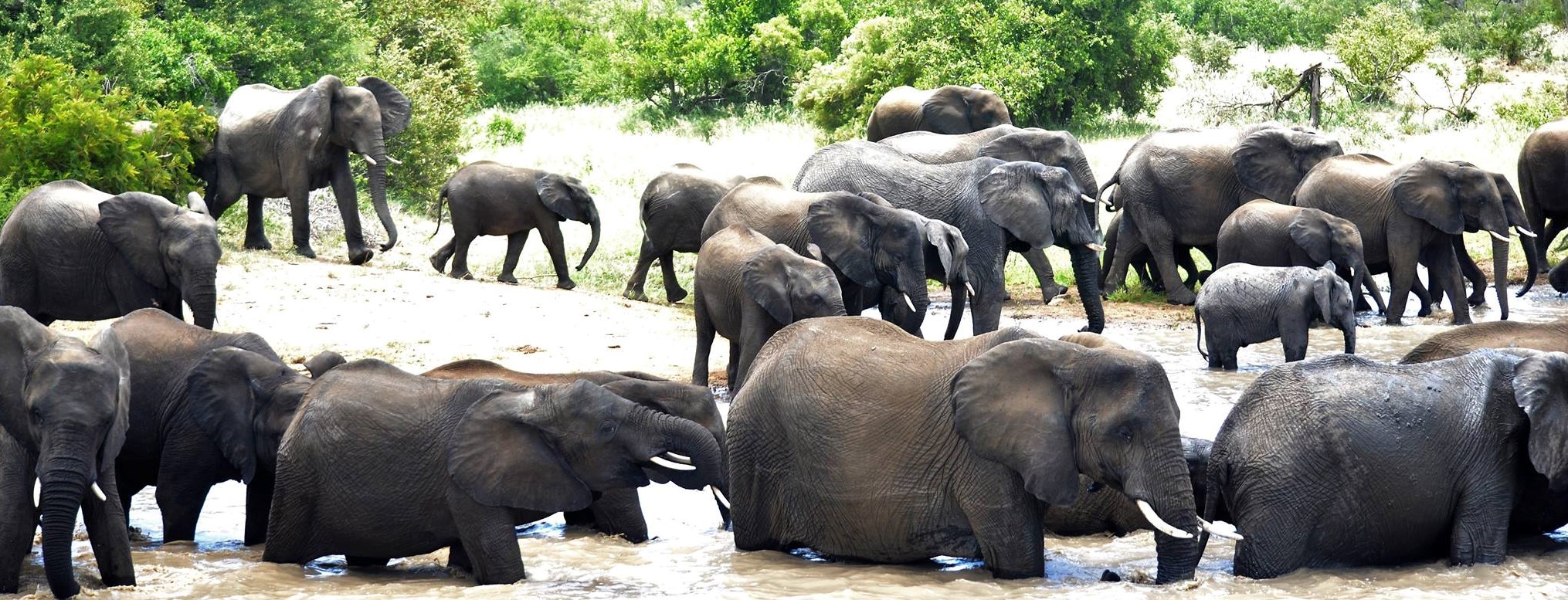Our projects have a strong focus on the development of a mutually beneficial human-elephant coexistence strategy and its implementation. Research into this has led to the several scientific publications.
Publications
- Owen, A., van de Water, A., Sutthiboriban, N., Tantipisanuh, N., Sangthong, S., Rajbhandari, A., & Matteson, K. (2024). The Role of Alternative Crop Cultivation in Promoting Human-Elephant Coexistence: A Multidisciplinary Investigation in Thailand. Diversity, 16(9), Article 9.
- Van de Water, A., Garaï, M. E., Burnett, M. M., Henley, M., Di Minin, E., Streicher, J. P., Bates, L. A., & Slotow, R. (2024). Integrating a “One Well-being” approach in elephant conservation: Evaluating consequences of management interventions. Ecology and Society, 29(3).
- Friswold, B., Mitchell, B., Gale, G., & Van de Water, A. (2023). Twisting collars on male elephants in shrub terrain: Animal welfare considerations for researchers, managers and manufacturers. Pachyderm, 64, 78–91.
- Van de Water, A., Doornwaard, S., Sluiter, L., Henley, M., Sutherland, C., & Slotow, R. (2023). Resolving Conservation Conflicts through Shared Vision, Collective Benefits and Relevant Values. Diversity, 15(10), Article 10.
- Van de Water, A., Henley, M. D., Bates, L., & Slotow, R. (2022). The value of elephants: A pluralistic approach. Ecosystem Services, 58(101488). https://doi.org/10.1016/j.ecoser.2022.101488
- Van de Water, A., Di Minin, E., & Slotow, R. (2022). Human-elephant coexistence through aligning conservation with societal aspirations. Global Ecology and Conservation, 37, e02165. https://doi.org/10.1016/j.gecco.2022.e02165
- Van de Water, A., King, L. E., Arkajak, R., Arkajak, J., Doormaal, N. van, Ceccarelli, V., Sluiter, L., Doornwaard, S. M., Praet, V., Owen, D., & Matteson, K. (2020). Beehive fences as a sustainable local solution to human-elephant conflict in Thailand. Conservation Science and Practice, e260.
- Van de Water, A., Henley, M., Bates, L., & Slotow, R. (2020). Future of Thailand’s captive elephants. Animal Sentience, 5(28).
- Van de Water, A. & Matteson, K. (2018). Human-elephant conflict in western Thailand: Socio-economic drivers and potential mitigation strategies. PloS one 13, e0194736.
- Van de Water, A. & Nilubol, D. (2013). Restoring habitat for the Bornean elephant. Natural History Bulletin of the Siam Society 59(1): 1–4, 2013.
- Van de Water, A., & Sluiter, L. (2009). The Great Elephant Escape. Silkworms Books. Chiang Mai, Thailand.
- Van de Water, A., & Sluiter, L. (2006). Thaise olifanten van de straat. Bzztôh Publishers. The Hague, the Netherlands.
Through a unique approach of engaging with people living with elephants, we are developing a holistic conservation model that reconciles conservation and human well-being goals, aiming for social justice, equality and social upliftment. Because we believe in coexistence solutions that contribute to the happiness of elephants and people.
Through questionnaires, interviews and participatory workshops and by practically working together with people living with elephants, we aim to:
- understand the variables that influence people’s attitudes towards elephants, and the prerequisites of human-elephant coexistence.
- enable change by developing a holistic mutually beneficial human-elephant coexistence strategy.
The One Well-being Framework integrates the collective well-being of humans, animals, and the environment. Human well-being is assessed through material, subjective, and relational factors; animal well-being via basic health, natural living, and affective states, and environmental well-being by ecological function, service provision, biodiversity risk, and resilience. Consequences of management intervention are classified as direct intentional, unintentional, and indirect effects, classifying each outcome as either beneficial or harmful.
A visual representation of a pluralist elephant valuation system. The multidimensional relationships among four overlapping valuation concepts (intrinsic, instrumental, relational, and moral) are shown above the 16 services, benefits, and values categories. The services, benefits and values associated with elephant conservation are further classified as mainly secular (green background), partly secular/partly sacred (white background), and mainly sacred (orange background).
News and updates
2024-09-09 An incredible study on nest predation in tropical forest birds!
2024-08-10 New Publication! One Well-being
2023-11-26 Twisting collars on male elephants in shrub terrain
2022-10-25 The value of elephants: A pluralist approach
2022-05-25 Human-Elephant Coexistence Through Aligning Conservation With Societal Aspirations
